Clean Air. Health. Climate. Justice.
The Biden Administration's imperative to advance environmental priorities.
Background
In August 2022, President Biden, Congressional Democrats, and people-powered movements achieved major progress for our health and climate by passing the Inflation Reduction Act, the largest investment in climate, justice, clean energy, and jobs ever. The bill will lower costs for families, help slash climate pollution in the U.S. by an estimated 40% by the end of the decade and support critical programs to improve our families’ health and cleans up legacy pollution.
But we’re up against powerful corporate polluters that won’t go down without a fight, and Congress isn’t the only way we can make environmental progress. Through the authority of laws like the Clean Air Act, agencies of the executive branch including the Environmental Protection Agency (EPA) have the authority and responsibility to create public health standards that protect us from harmful and deadly pollution in the air we breathe.
Big polluters are closely watching the EPA and are exerting all of their insider influence to make these standards as weak as possible so they can continue to pollute and profit. The good news? Every federal rule goes through a series of steps with opportunities for public input along the way, and that's where we come in!
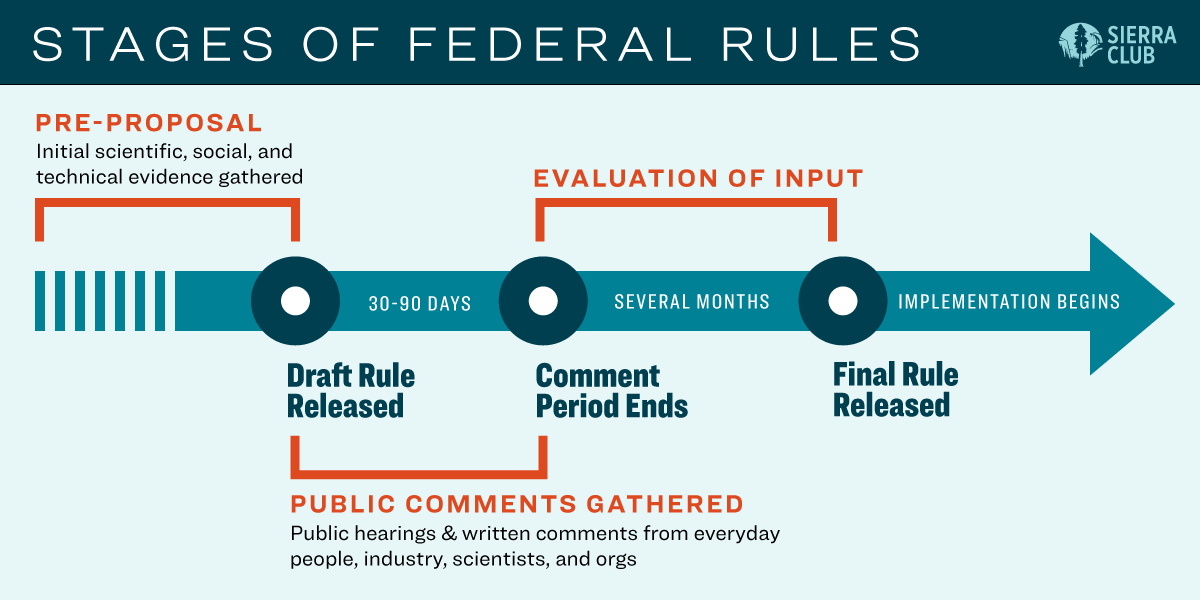
Opportunities for Change
Throughout 2022 and into 2023, EPA will release draft and final rules for a slew of major public health and environmental standards, and each rule comes with chances for our voices to be heard through public comments and hearings. The EPA’s multipollutant strategy will include reducing:
- Ozone, or smog, pollution from coal- and gas-fired power plants and other industrial polluters
- Particulate matter (soot) from coal-fired power plants and other industrial polluters
- Methane from oil and fracked gas development
- Tailpipe pollution from heavy-duty trucks
- And much more!
Stay tuned for comment forms on other pollutants in the coming weeks and months!
EPA Administrator Michael Regan and the whole Biden administration is listening! The more pressure we put through written comments and public hearings, the more likely our government officials will enact policies to meet the scale of the climate crisis, the urgency of racial justice, and to improve the health of our neighbors and communities.
Share Your Story at a Public Hearing
As part of nearly every public comment period for every new or updated EPA rule or federal standard, there are public hearings where anyone in the general public has an opportunity to give their input with a verbal testimony. Sometimes these hearings are in person, but often they are virtual and accessible to anyone.
Sierra Club consistently supports dozens of supporters testifying at such hearings, and can provide you with support in signing up, crafting your personal testimony, and more.
Stay tuned during open comment periods from communications from Sierra Club staff on how to share your story during a public hearing.
Keep Up With These Key Administrative Rules
First, see the overview of the stages of Federal Rules in the graphic above, then see where we stand with some of the top rules we're tracking below.
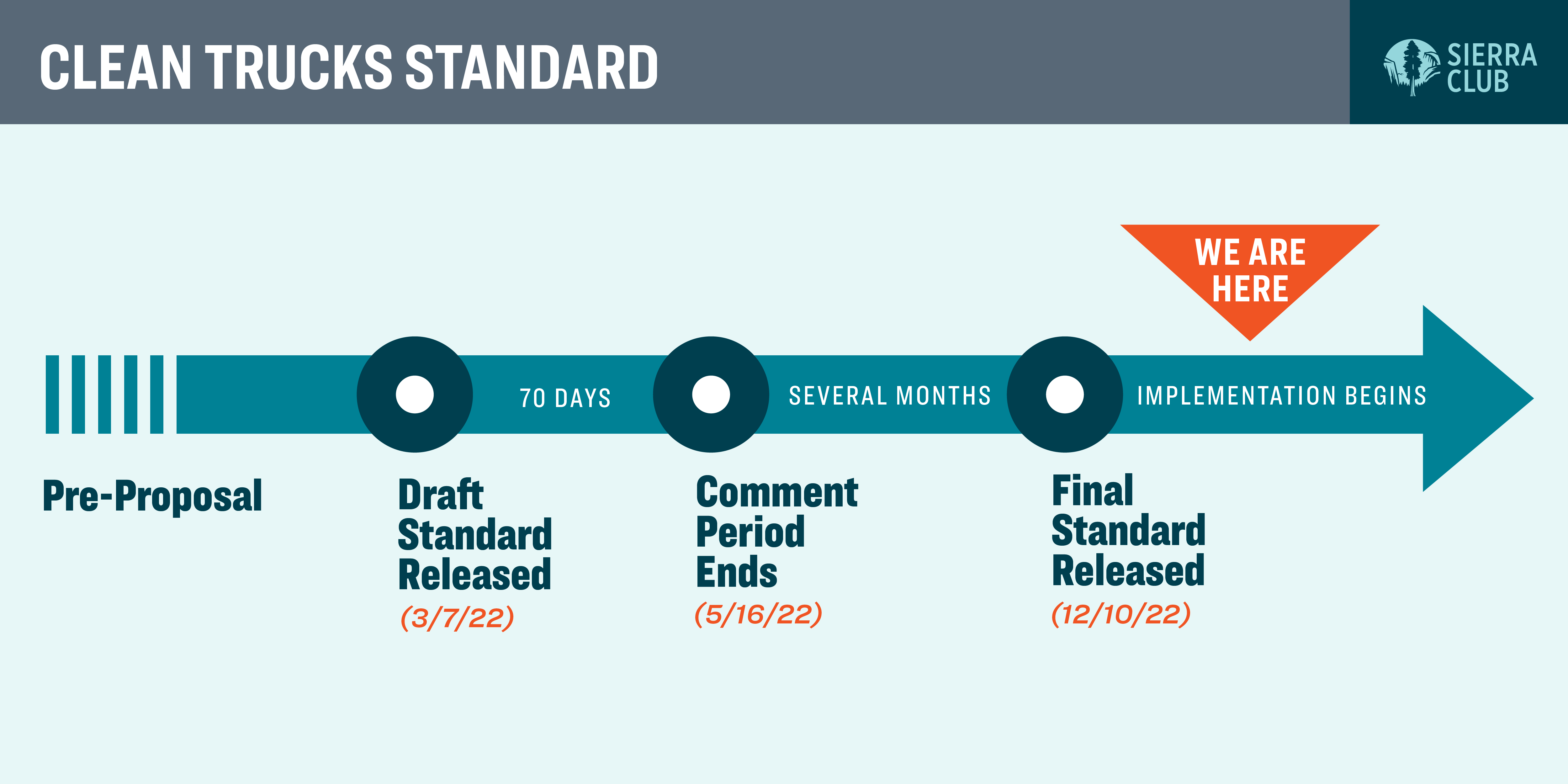
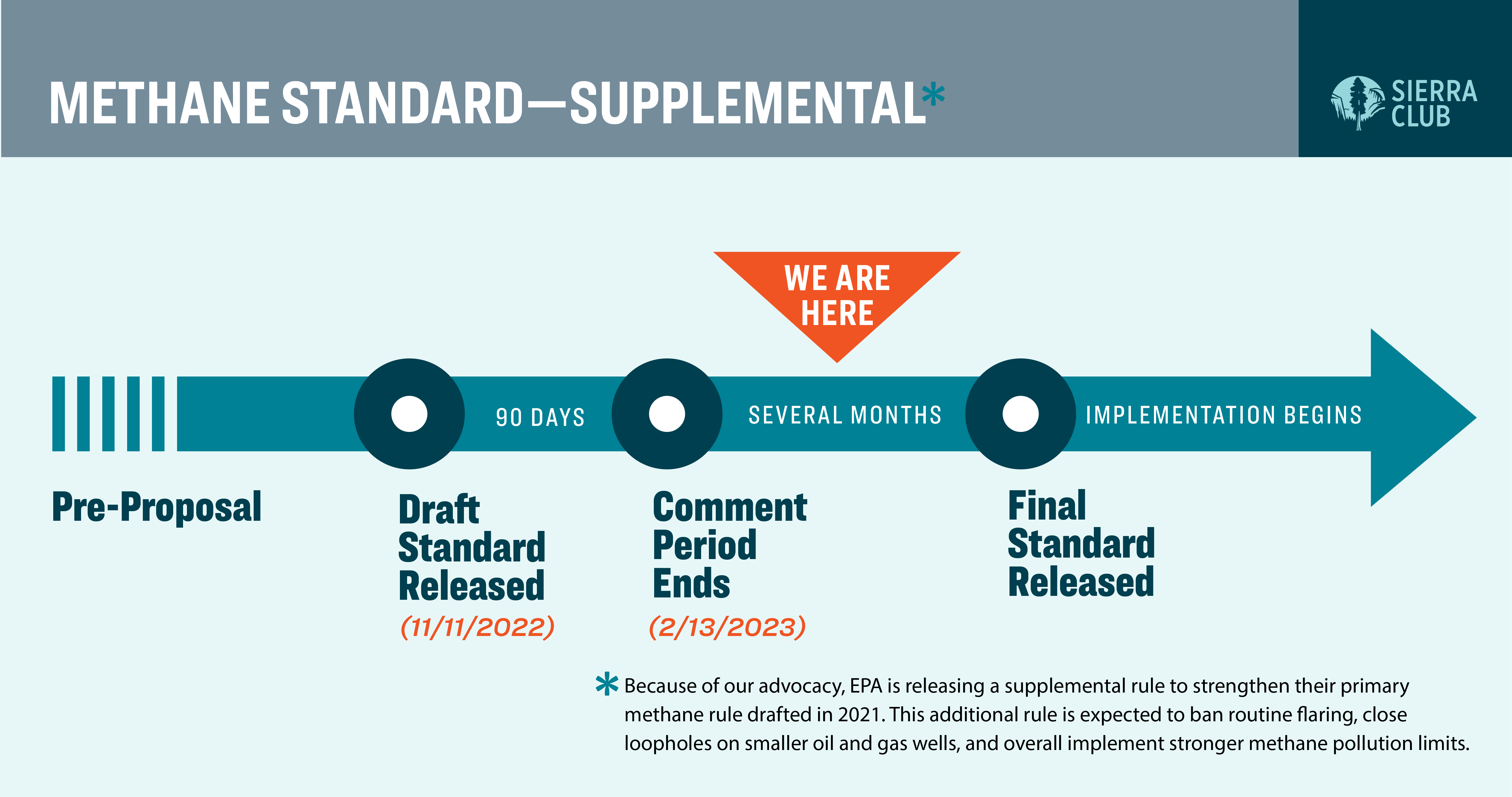
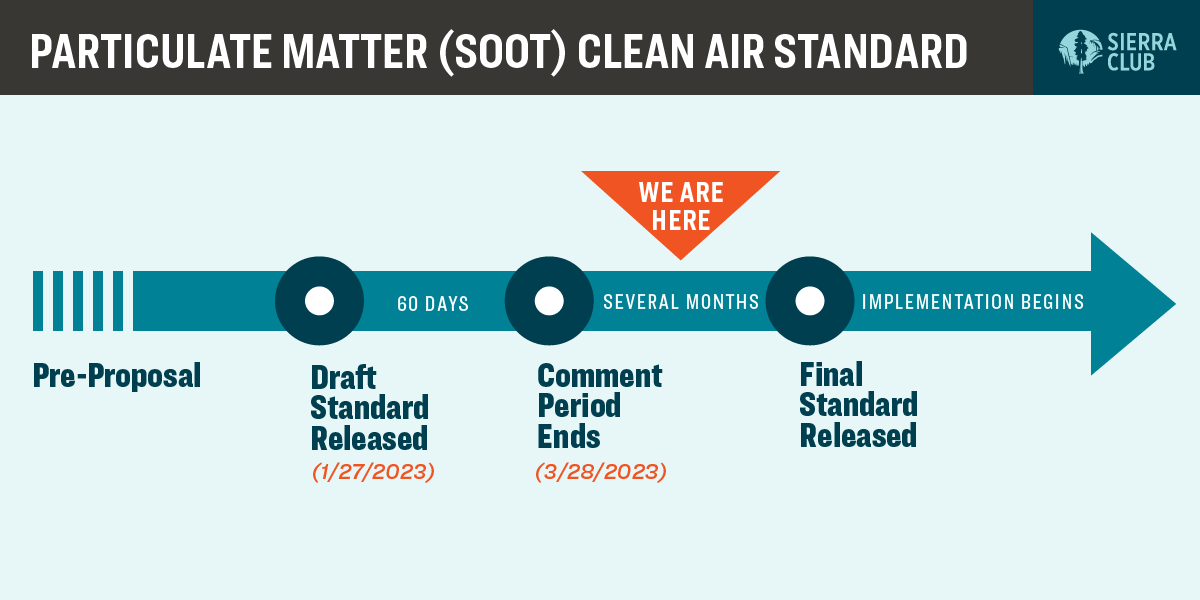
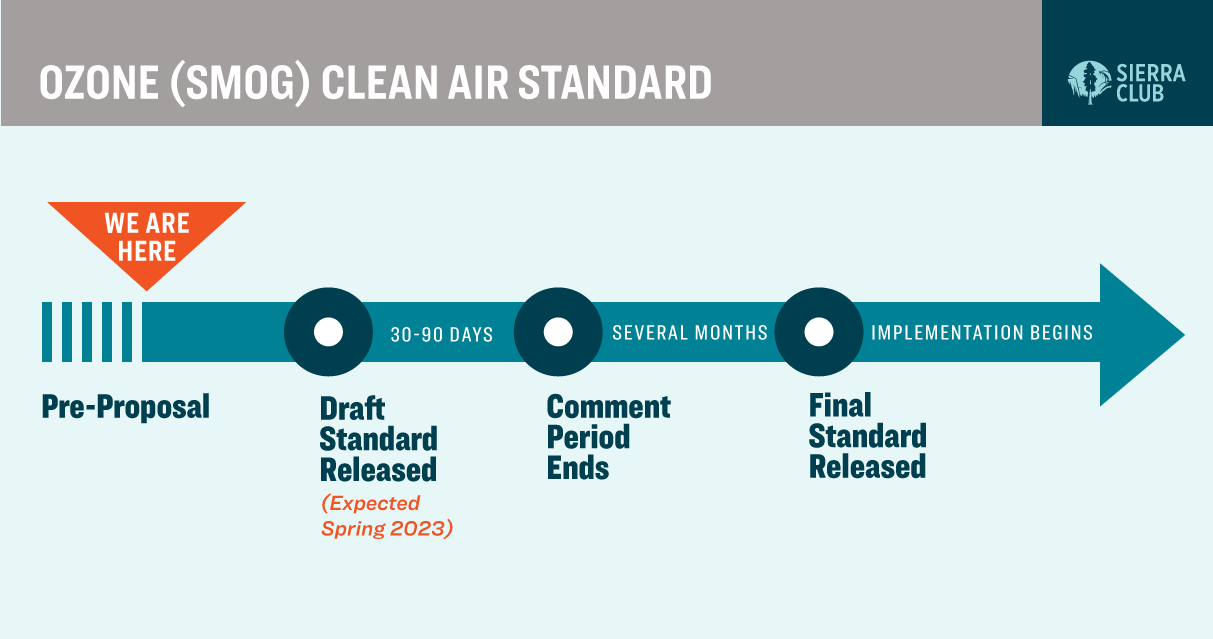
We’ve achieved progress on several administrative standards so far, but there's more to do.
Over the last couple years, the Biden administration has already begun the process for:
- Strengthening fuel economy standards for several categories of vehicles: cars, light duty and heavy duty trucks.
- Limiting cross-state air pollution in the "Good Neighbor" Rule: protecting those living downwind from dirty coal plants in other states.
- Ending some of the startup, shutdown, and malfunction (SSM) loopholes that allow industrial polluters to release huge amounts of harmful pollution, without accountability or consequences, into the air that fenceline communities breathe.
- Reducing mercury and other air toxics.
Together, we'll ensure the Biden Administration finishes the job on all of these to ensure healthier families, cleaner air, and a safer climate for all.